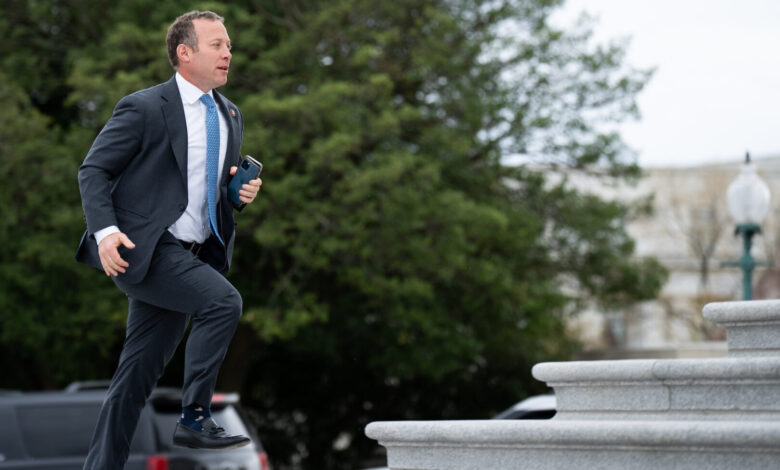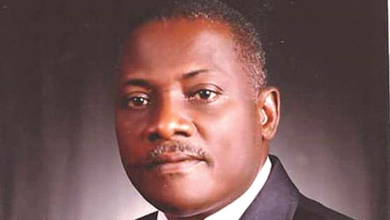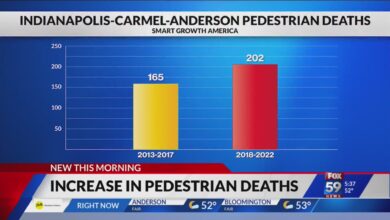Carmakers ditching AM radio is ‘unsafe,’ some lawmakers say

Rep. Josh Gottheimer, D-N.J., is urging the National Highway Traffic Safety Administration to require vehicles without AM radio to bear a warning sticker deeming them unsafe in emergencies, in the latest push to require automakers to retain free AM radio in new vehicles.
A handful of manufacturers said they were dropping the broadcast medium mainly for new electric vehicles. Tesla, Volvo and Audi cited electromagnetic interference with AM radio reception created by electric motors. Ford Motor Co. had announced it was scrubbing the band from its new vehicles, but CEO Jim Farley said in May on social media platform X, formerly Twitter, that the company will keep it for 2024 vehicles after “speaking with policy leaders.”
In a letter, Gottheimer argues that the stations are vital since they are used to broadcast a Federal Emergency Management Agency emergency alert system during natural disasters or other emergencies.
“Auto manufacturers should be required to note in big red letters on the sticker price that’s in your window, ‘Warning: No AM Radio, Vehicle Unsafe in Emergencies,’” Gottheimer said at a news conference Monday. “This should be required … [until the bill] is passed.”
Gottheimer introduced a bill that would require the Transportation Department to issue a rule mandating AM radio be included in all motor vehicles. Sen. Edward J. Markey, D-Mass., introduced the Senate version of the bill with Sen. Ted Cruz, R-Texas. The Senate Commerce, Science and Transportation Committee advanced the bill in July.
Advocates of keeping the band argue that its alerts are more reliable and detailed than emergency notifications on cellphones and devices. Gottheimer added in the letter that AM radio’s lower frequencies and longer wavelengths allow it to travel longer distances than FM or satellite radio signals, making it more reliable.
“During the aftermath of 9/11 and Hurricane Sandy, not to mention countless storms and floods, AM radio provided a crucial lifeline for life-saving information,” he said in the letter to NHTSA acting administrator Sophie Shulman. “EV makers don’t want to spend a little more to keep us safe in a national emergency using existing technology that would allow electric cars to have AM radio.”
Cruz said in a December floor speech that AM is crucial for rural America, as many people in hard-to-reach areas only have access to it, and that moves to nix the band, the home to mainly conservative talk shows, may amount to a political affront.
“AM radio is a haven for people to speak, even if their views are disfavored by the political ruling class. Rush Limbaugh would not exist without AM radio. … Whether Mark Levin or Sean Hannity or Glenn Beck, allowing free speech is important,” he said. “I believe these automakers stood up to remove AM radio as part of a broader pattern we see of censoring views that are disfavored by big business.”
Some automakers have adopted techniques to mitigate AM radio interference, including combining shielding and filtering or changing component placement. But an October Center for Automotive Research report estimated that adopting shielding and filtering techniques to keep AM radio in electric vehicles could cost the auto industry a total of $3.8 billion over the next six years.
The industry is defending automakers’ actions, arguing that a mandate is unnecessary and contrary to free-market principles.
In a letter to senators, the Alliance for Automotive Innovation, the Zero Emission Transportation Association and others note that emergency alerts are meant to be redundant and other methods like text messages “supplement any loss of AM radio access.”
“Mandating analog AM radio in automobiles — which Congress has never done — is an unnecessary action in the modern communication era and has no bearing on the ability of drivers to receive emergency alerts across multiple modes of communication currently available in automobiles manufactured today,” they wrote.
The Biden administration has yet to respond to calls for a mandate, although White House Press Secretary Karine Jean-Pierre said in an April briefing that car manufacturers removing AM radios should ensure an alternative for receiving critical information is available.
“Again, this is something that FEMA takes very seriously … [but] it’s not the only tool providing critical information to the American people,” she said.



